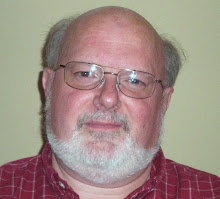
The experiment: Gordon Bell has captured a lifetime's worth of articles, books, cards, CDs, letters, memos, papers, photos, pictures, presentations, home movies, videotaped lectures, and voice recordings and stored them digitally. He is now paperless, and is beginning to capture phone calls, IM transcripts, television, and radio. (The title to this post is linked to his website).
As I continue to research my current curricular project of Personal Knowledge Management, I'm constantly reviewing the work of others in the field. While a bit "over the top" for most students, the conceptualization and attempt by Gordon Bell to capture every bit of his life digitally is noteworthy.
In a Michael Card song, he sings that "it's hard to imagine the freedom we find, in the things we leave behind." Personal Knowledge Management is, IMHO, much about what we choose to take, and then conversely, what we do, in fact, leave behind.
Humans become individualized by filtering our "input" based upon past observations, experiences, and preferences. What is boring "elevator" music to some will bring back fond memories in (dare I say "older") others.
The application of taxonomies, the proper hierarchy of various components, and the desired outcome of the information being converted into knowledge are all critical.
I'll be posting from time to time on my curriculum development project, which fuzzily is
"a freshman-level course designed to familiarize students with their personal responsibility to capture, organize, annotate, and collaborate concerning their own journey toward becoming educated persons. The course should introduce various software enhancements to the process, while not ignoring the inter-personal nature of learning. This familiarization should then be habituated so that the knowledge worker can continue to enhance both his own and his organization's collective knowledge and expertise."







No comments:
Post a Comment